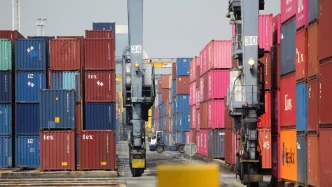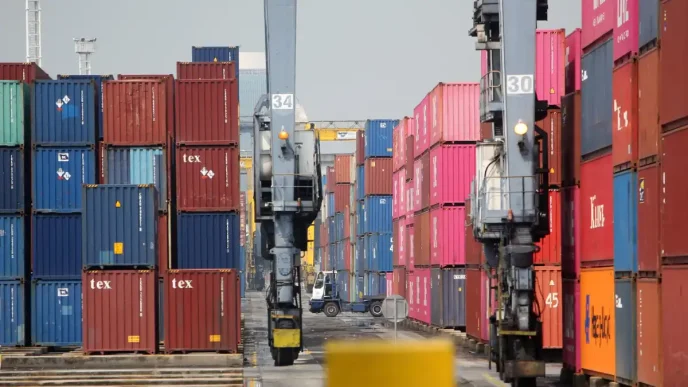Singapore’s authorities have launched a probe into Tokenize Xchange, a cryptocurrency trading platform operated by AmazingTech, over allegations of fraudulent trading. The investigation, announced on August 1, 2025, by the Singapore Police Force (SPF) and the Monetary Authority of Singapore (MAS), has already led to charges against a company director, raising broader concerns about the oversight of digital payment services in the city-state.
Investigation and Charges
The Commercial Affairs Department (CAD) of the SPF is leading the investigation into AmazingTech and its related entities for potential offenses, including fraudulent trading. In a joint statement, SPF and MAS confirmed that Hong Qi Yu, a director at AmazingTech, was charged with fraudulent trading on July 31, 2025. This offense carries a potential penalty of up to seven years in prison, a fine, or both, signaling the severity of the allegations.
AmazingTech had been operating Tokenize Xchange under a temporary exemption from licensing requirements under Singapore’s Payment Services Act 2019. This exemption allowed the company to continue its operations while MAS reviewed its application for a digital payment token license. However, the exemption was revoked on July 4, 2025, when MAS rejected the application. Following the rejection, AmazingTech was instructed to cease providing payment services, wind down its business in an orderly manner, and ensure the return of all customer funds and digital tokens.
Instead of complying fully with these directives, the company announced on July 20, 2025, that it would relocate its operations to Labuan, Malaysia. This move has raised questions about the firm’s commitment to addressing customer concerns in Singapore and whether the relocation is an attempt to evade regulatory scrutiny.
Customer Complaints and Financial Irregularities
The investigation was triggered in part by a series of customer complaints received by MAS in mid-July 2025. Customers reported significant delays in withdrawing funds and digital tokens from their accounts on the Tokenize Xchange platform. In response, MAS directed AmazingTech to address these issues promptly and to return customer assets, even if it required the company to cover any shortfalls in accounts.
Further engagement with the company revealed troubling indications about its financial health. MAS found that AmazingTech might not have sufficient assets to meet customer claims, a critical concern for users who had entrusted the platform with their funds. Additionally, there were signs that the company had failed to segregate customer assets from its own, a fundamental principle of financial regulation designed to protect clients in the event of insolvency.
Perhaps most concerning, MAS uncovered evidence suggesting that AmazingTech may have provided false information during its application for a major payments institution license. The regulator alleges that the company misrepresented the segregation of customer assets, a claim that, if proven, could undermine trust in the platform’s operations. These findings prompted MAS to refer the matter to the CAD for a deeper investigation into potential misconduct.
Impact on Employees and Users
As part of its wind-down process in Singapore, Tokenize Xchange announced that its 15 employees in the city-state would be laid off by September 30, 2025. The company stated that some staff might be offered roles in its international operations, while those remaining in Singapore would assist local users until the closure date. Tokenize Xchange also pledged to support affected employees in finding new career opportunities, though the abrupt layoffs have added to the uncertainty surrounding the firm’s future.
For users of the platform, the situation remains precarious. The delays in withdrawals and the apparent shortfall in assets have left many customers worried about recovering their investments. While MAS has urged AmazingTech to prioritize the return of customer funds, the regulator has also made clear that the company is not licensed or supervised by MAS, meaning users may have limited recourse if their assets are not returned.
Regulatory Context in Singapore
Singapore has positioned itself as a global hub for fintech and cryptocurrency innovation, balancing a welcoming stance toward new technologies with stringent regulatory oversight to protect consumers. The Payment Services Act 2019, under which AmazingTech sought a license, is a cornerstone of this framework, establishing clear rules for digital payment token services and other financial activities. Entities operating under exemptions are expected to meet high standards during the application process, and failure to do so can result in severe consequences, as seen in this case.
The rejection of AmazingTech’s license application and the subsequent investigation highlight the challenges of regulating fast-evolving sectors like cryptocurrency. While Singapore encourages innovation, it has little tolerance for firms that fail to meet transparency and accountability standards. The case of Tokenize Xchange serves as a cautionary tale for other crypto platforms operating in the region, underscoring the importance of robust compliance with local laws.
Broader Implications for the Crypto Industry
The probe into Tokenize Xchange comes at a time when the cryptocurrency industry worldwide is grappling with increased scrutiny. High-profile collapses of crypto exchanges and allegations of fraud in other markets have eroded public trust in digital assets, prompting regulators to tighten controls. In Southeast Asia, where crypto adoption is growing rapidly, governments are racing to establish frameworks that protect investors without stifling innovation.
In Singapore, the MAS has been proactive in addressing risks associated with digital payment tokens. The regulator has issued warnings to the public about the speculative nature of cryptocurrencies and the potential for fraud in unlicensed platforms. The investigation into AmazingTech may further reinforce the need for consumers to exercise caution when engaging with crypto services, particularly those that are not regulated by national authorities.
Moreover, the relocation of Tokenize Xchange to Labuan, Malaysia, raises questions about regulatory arbitrage—the practice of moving operations to jurisdictions with less stringent rules. While Labuan is known for its offshore financial center and favorable policies for fintech firms, it remains to be seen whether Malaysian authorities will impose similar scrutiny on the platform’s activities. This cross-border dynamic complicates efforts to ensure accountability in the crypto sector, as firms can potentially exploit differences in regulatory regimes.
Customer Protection and Legal Risks
For customers of Tokenize Xchange, the immediate priority is the recovery of their funds and digital assets. The lack of asset segregation alleged by MAS could mean that customer holdings are at risk if AmazingTech faces insolvency. Legal experts note that pursuing claims against an unlicensed entity can be challenging, especially if the company’s assets are insufficient to cover liabilities.
The charges against Hong Qi Yu also highlight the personal legal risks faced by executives in such cases. Fraudulent trading, if proven, is a serious offense under Singapore law, and the potential seven-year imprisonment term serves as a stark reminder of the consequences of financial misconduct. This case may set a precedent for how authorities handle similar allegations against crypto operators in the future, potentially leading to stricter enforcement actions.
Looking Ahead
As the investigation into Tokenize Xchange unfolds, its outcome could have far-reaching implications for the cryptocurrency landscape in Singapore and beyond. Will regulators impose harsher penalties on non-compliant firms, or will this case prompt a broader overhaul of how digital payment services are monitored? For now, customers, employees, and industry observers are left waiting for clarity on whether AmazingTech can meet its obligations and whether trust in the platform can be restored.
In the meantime, the case underscores a critical lesson for crypto investors: the promise of high returns often comes with significant risks, particularly when dealing with unregulated or under-regulated entities. As Singapore continues to refine its approach to fintech oversight, the balance between innovation and consumer protection remains a delicate one.
















